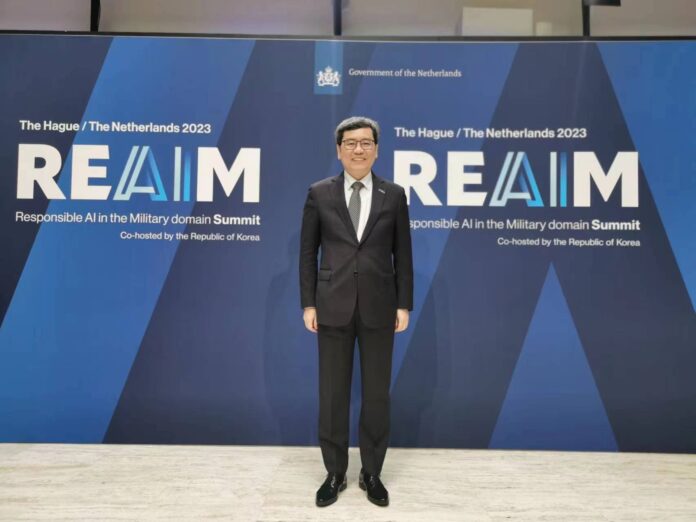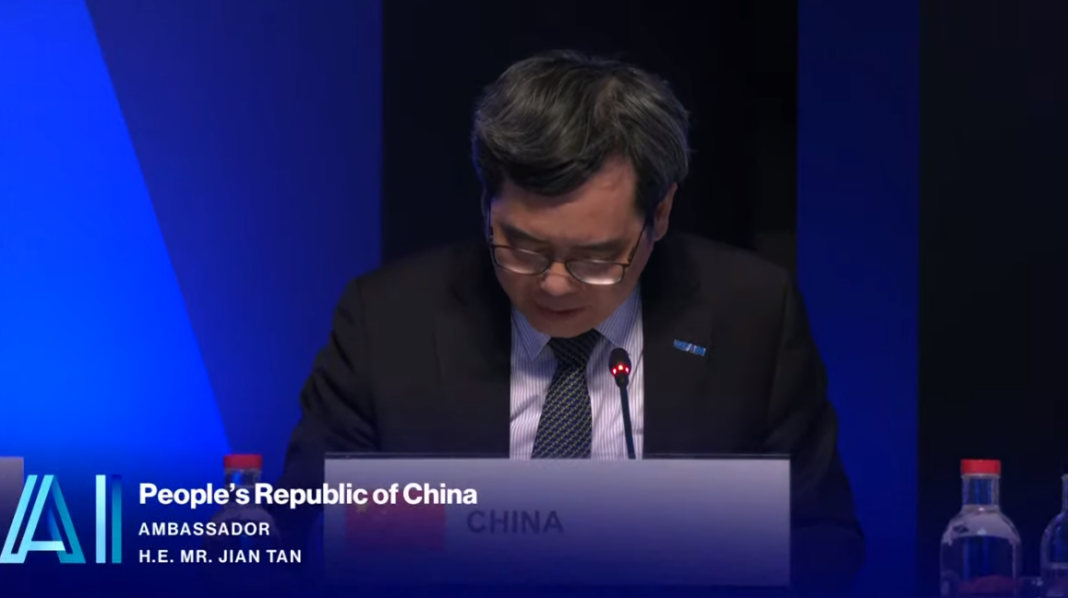By H.E. Mr. Tan Jian, Ambassador of China to the Kingdom of the Netherlands, Permanent Representative of China to the OPCW
Recently, the Chinese sci-fi blockbuster The Wandering Earth 2 has been released in many countries. The artificial intelligence robot MOSS, one of the main characters in the movie, is determined to carry out the meta-command of “continuing human civilization”. It endeavors to force human beings to stop internal conflicts and reinforce unity, even at the cost of creating the extinction crisis again and again. In reality, since the concept of AI was first introduced in 1956, its research and application has been fruitful. AI has become part of human civilization, changed significantly our life and injected powerful development momentum into human society.
However, AI also brings new challenges to social governance, privacy protection and ethics. In particular, military applications of AI is no longer a “pipe dream”: some countries set no limits on AI weapons, drones have been frequently used for targeted elimination in real combat, and killer robots are also gradually coming out of the “hidden corner”… Some people predict that AI weapons could lead to “the third revolution in the field of warfare after gunpowder and nuclear weapons ” and it might trigger a new round of arms race, lower the threshold of war and break global strategic balance. What is frightening is that lethal autonomous weapons systems (LAWS) prioritize AI algorithms over human life. Once they are mastered by terrorist groups, the future of human civilization will be disastrous. The famous physicist Stephen Hawking has warned that “AI might lead to the extinction of mankind.”
“Preparedness ensures success and unpreparedness spells failure”. The international community has started to take concrete actions to tackle the “Collingridge Dilemma” of AI. In 2014, the United Nations established the group of governmental experts (GGE) within the framework of the Convention on Certain Conventional Weapons (CCW), which has organized since then several rounds of discussions on LAWS-related issues. China participated actively in this process in a constructive manner. Five years later, the GGE reached “11 guiding principles on LAWS” in 2019, filling to a certain extent the gap of governance in this important frontier area.

As a responsible country, China has always been committed to building a community with a shared future for mankind in the field of AI. China attaches great importance to preventing and managing potential risks of AI, and actively contributes Chinese insight and input to the global governance of AI. In December 2021, China submitted the Position Paper of the People’s Republic of China on Regulating Military Applications of AI to the Sixth Review Conference of the CCW. In November 2022, China submitted the Position Paper of the People’s Republic of China on Strengthening Ethical Governance of AI to the Conference of States Parties of the CCW, calling on the international community to uphold the principles of “giving priority to ethics”, “putting people’s well-being front and center” and “AI for good” in the aspects of regulation, research and development, utilization and international cooperation.
On 15 and 16 February, the Summit on Responsible AI in the Military Domain (REAIM) was held in The Hague. It has showed the positive attitude of the Netherlands to participate in the global governance of AI in the military domain and to uphold multilateralism. The Chinese delegation has attended the event and participated in the discussions, expecting that the conference could contribute to consensus building on the basis of extensive participation and exchanges among all parties.
It is important to note that strengthening the global governance of AI is not meant to restrict the development of related industries and international cooperation. “Too far east is west”. Some countries, on the pretext of so-called “governance”, are actually pursuing the policies of “my own country first” and “beggar-thy-neighbor”. Unwilling to share development dividends with the international community and promote common security, they instead draw ideological lines, frequently wield the stick of unilateral sanctions, and persist in “building walls and barriers” and “decoupling chains”. This kind of short-sighted behavior will end up by hurting themselves and others.
China is one of the major players in the field of AI. With persistent efforts, China’s AI industry has made great progress in research and development, commercialization and application, providing strong support for the digital economy and social development. In particular, China’s technologies of image recognition, voice recognition and others have entered the world’s leading ranks, and the total number of AI invention patents granted of China ranks first in the world. Moreover, China’s advantages in policy support, funding and investment, market scale, application scenarios, data resources and others will further promote the development of its AI industry. China will also continue to carry out relevant international cooperation with a more open attitude, both to serve its own people and to benefit the international community.
The 20th National Congress of the Communist Party of China was held with great success last year. Heading towards the new era, China will conduct cooperation with other countries in an open and inclusive manner. More than 50 years of diplomatic relations at ambassadorial level between China and the Netherlands shows that, openness and pragmatism has always been the most distinctive feature of our bilateral relations. China’s blueprint for high-quality development and high-level opening-up will be a boost to the Sino-Dutch cooperation in the future.
Last year, in the Almere International Horticultural Exposition, three Chinese AI robots served as “cultural communication ambassadors” in China’s Bamboo Garden and were widely praised for their excellent performance. The Netherlands also plays a key role in the field of AI. With respective and complementary advantages, China and the Netherlands have solid foundation and broad prospects for mutually beneficial cooperation in AI. We should stick to multilateralism, uphold the concepts of openness, inclusiveness and mutual benefit, “open windows” rather than “set barriers” for cooperation, and deepen the bilateral cooperation on AI technology and related industries. It would bring more incentives to Sino-Dutch All-round Cooperative Partnership, inject positive energy into the stability of global supply and industry chains, and deliver more “AI dividends” to the world.



